#french political history
Explore tagged Tumblr posts
Text



18K notes
·
View notes
Text

#liberalism#democrats#republicans#politics#france#unions#civil rights#twitter#blm#free palestine#gaza#french history
1K notes
·
View notes
Text
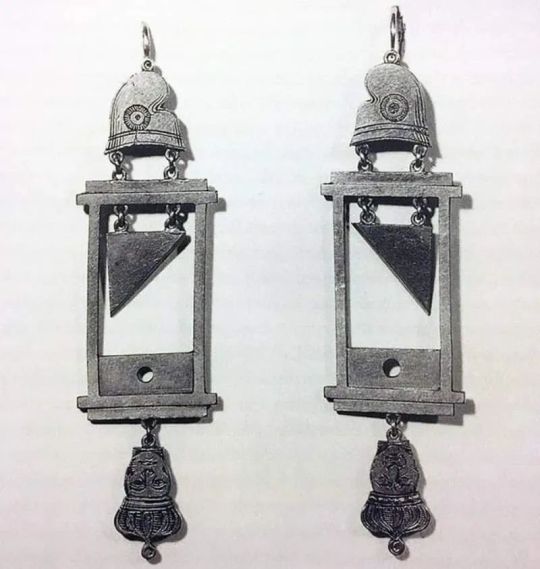
Guillotine earrings commemorating the execution of Louis XVI during France’s Reign of Terror, c. 1793
#guillotine#guillotine earrings#guillotineearrings#louis xvi#france#jewelry#earrings#vintage jewelry#18th century#antique jewelry#reign of terror#french revolution#1789#1799#1793#1794#18th century history#jewellery#french politics#french history
824 notes
·
View notes
Text
Me pretending to interview a guy who died 230 yrs ago just for a really silly comic



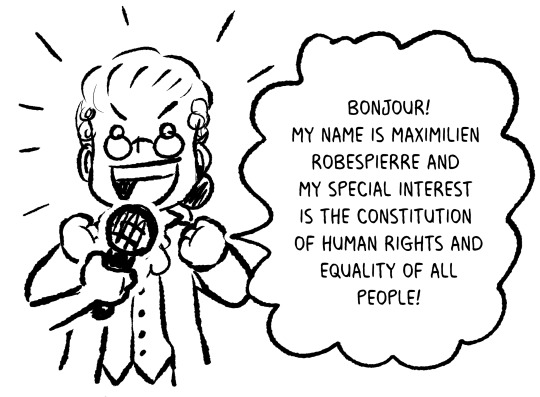

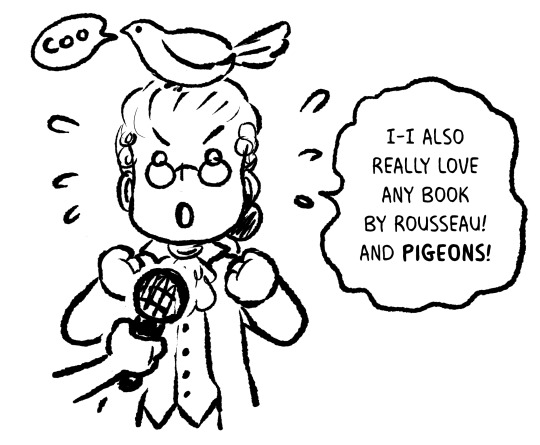
#robespierre was autistic okay?#when a hyper fixation manages to help create entire political systems#can you guess what my special interest is lol#frev#french revolution#maximillien robespierre#robespierre#autism#actually autistic#special interest#autism special interest#autism comic#history comic#really silly comic lol
281 notes
·
View notes
Text
Okay wait, did I imagine this and assume it was a fact, or was this a thing?
I thought Luthen Rael's name was a deliberate homage to Louis Riel. The Metis Canadian resistance leader.
They have a lot spiritually in common. Louis Riel is, of course, famously also a badass who was murdered by an oppressive, imperialist government.


#andor#andor star wars#andor spoilers#star wars andor#cassian andor#andor season 2#canadian#canada#canada politics#canadian politics#french canada#canadian history#star wars
41 notes
·
View notes
Text
This is such a bizarre time to be researching The French Revolution.
It is also such a bizarre time to be studying autistic traits in history.
And it’s a REALLY bizarre time to be studying how autistic traits affected The French Revolution.
#frev#french history#us politics#politics#late 1700s#1700s#18th century#european history#autism history#autism#ableism#french revolution#robespierre#maximilien robespierre#frev community
22 notes
·
View notes
Text










Deny, defend, depose
#deny defend depose#luigi mangione#united healthcare#ceo down#fuck ceos#corporate greed#french revolution#know your history#garth nader memes#mst memes#mystery sovcit theater memes#mistaken con man#dankest memes#tumblr memes#political memes#pathetic3
30 notes
·
View notes
Text

En route to Charleroi
#My art#History#French Revolution#Frev#Saint-Just#Was reading about the role of political commissioners in revolutionary armies through the ages#Hence this#The product of three days of frustration
81 notes
·
View notes
Text
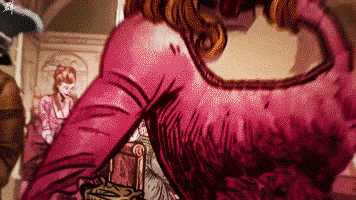
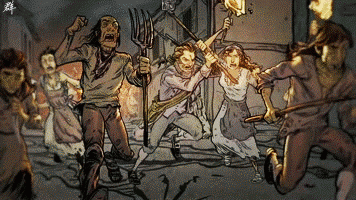
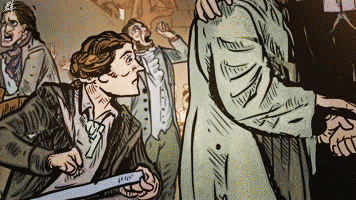
For the average person, all problems date to World War II; for the more informed, to World War I; for the genuine historian, to the French Revolution.
Erik von Kuehnelt-Leddihn
#Erik von Kuehnelt-Leddihn#kuehnelt-leddihn#quote#french revolution#14 july 1789#bastille day#history#french history#world history#civilisation#western history#politics#historian#ideology#revolution#europe
305 notes
·
View notes
Note
I dont know if you already answered this question (I'm sorry if you did!) but, which JJ's book do you recommend for starters?
Hi, thank you for the ask. I don't think I've ever answered it publicly actually!
It depends entirely on what interests you:
1. The Social Contract/Du contrat social
-> start here if you want to pick up Rousseau because you're interested in the French Revolution/politics/political philosophy. It is probably his most famous work (along with Emile maybe)
It's surprisingly readable (and funny at times!), though if you expect a perfectly coherent and logical system, be prepared for disappointment. It also helps to know at least some basics (like the gist of Hobbes' or Locke's political philosophy), but don't worry if you don't, you're still understand most of it.
2. Letter to M. d'Alembert on Spectacles
-> start here if you want a genuinely fascinating insight into late 1700s misogyny. It's chilling how some of the arguments feel so contemporary. It's fairly short, and reads more like a ramble/angry twitter thread that just pulls you right in.
It's great to get your blood boiling, but not a great start if you want to like Rousseau. Oh, and if you read it alongside Confessions, the sheer level of cognitive disonance/denial it's simply delicious.
3. Confessions
-> start here if you want to learn about Rousseau's life. It won't necessarily give you the true facts, but it will offer you a fascinating insight into his mind.
It's one hell of a ride, but it's not all weird psychosexual wtf moments. You can learn a lot from it about what life was like in the 18th century, and about the (usually unspoken) social norms. One thing I loved was that it revealed how much power French women actually had in the society, though it wasn't immediately obvious.
Also, there are some passages in which he talks about his social anxiety and insecurities where I genuinely find myself sympathising with him.
I'm also sorry to say that I firmly believe that it's a fun read. It gets very, very frustrating at times, but the man could write.
4. Introducing Rousseau by Dave Robinson
-> Start here if you want a quick overview/something to hold onto before jumping straight in!
Yeah, it's an illustrated guide, it's a tiny book and it looks a bit daft, but I personally swear by it. It's a very quick and engaging read, but it represents his philosophy and his life fairly well from what I can tell.
Pictured here with my hand and the man himself:

Honourable Mentions:
5. Discourse on the Arts and Sciences -> start here if you want to start with a text that first made Rousseau famous/are keen to approach his works in a chronological order
6. Emile, or On Education -> I haven't read this one I'm afraid (though I now own it!), but it's one of his most influential works. If you're interested in the idea of childhood and education, this one's for you! (but prepare to be angry re: Education of Sophie I guess)
Hope this helps, and do let me know how you get on!
#tw: jj#asks#answered#rousseau#jean jacques rousseau#frev#frevblr#political philosophy#philosophy#reading#reading recommendations#18th century#1700s#social contract#confessions#history#age of enlightenment#enlightenment#french history
27 notes
·
View notes
Text
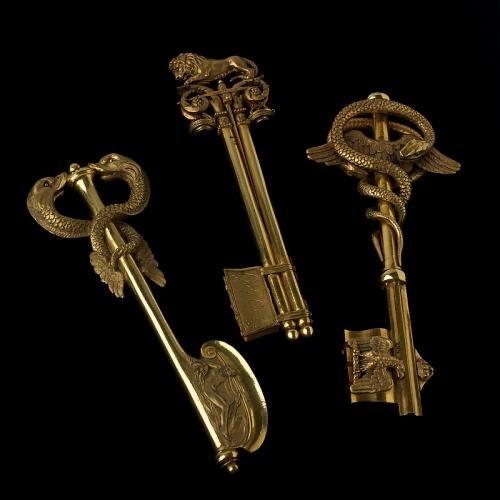
The keys to the city of Lyon, France. 1805.
Joseph Chinard drew the pieces and the goldsmith Antoine Saunier made them.
They are symbols of Lyon’s allegiance to Napoleon I, who lifted the city from its ashes after the French Revolution. They were created in 1805 on the occasion of the emperor’s visit to Lyon.
These three keys are works of art and do not materially open any door of the city. They symbolically represent the three divisions (north, west and south) that made up the city under the First Empire (1804-1814). Each is decorated with a symbol illustrating the specificity of the neighborhood.
They were made for the visit to Lyon on April 10, 1805, of Emperor Napoleon I and Empress Josephine. They are presented to him publicly, in front of a floor of politicians —whose names are engraved on the back of the dish — as a sign of allegiance and gratitude on the part of the city.
MHL - Musée d'Histoire de Lyon
#Lyon was the second largest city in France at the time#Les Clés de la Ville de Lyon#Musée d'Histoire de Lyon#Lyon#France#napoleonic era#napoleonic#napoleon bonaparte#first french empire#french empire#19th century#history#keys#1800s#napoleon a political life#Joseph Chinard#Chinard#Antoine Saunier#Saunier#art#french revolution
43 notes
·
View notes
Text
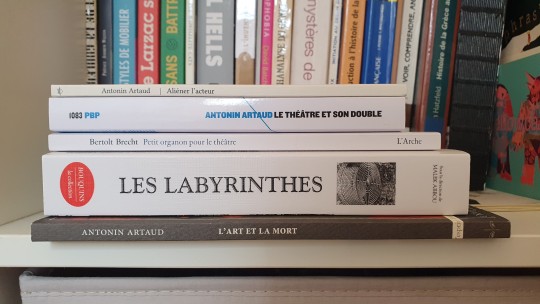
gearing up for INSUFFERABLE FUCKER SUMMER #INSUFFERABLE #FUCKER #SUMMER
#neigh (blabbers)#famous mgs comic Yellowcake on the same shelf as Artificial Hells: participatory art and the politics of spectatorship;#Mysteries of the Alphabet; Introduction To History Of French Language & Seeing Understanding and Analysing Images YESSIR thats called RANGE
9 notes
·
View notes
Text
Incorruptible Interlude pt 2
If you didn't know where the terms 'left wing' and 'right wing' come from...now you know! Also, can you spot the Robespierres in these pages? lol
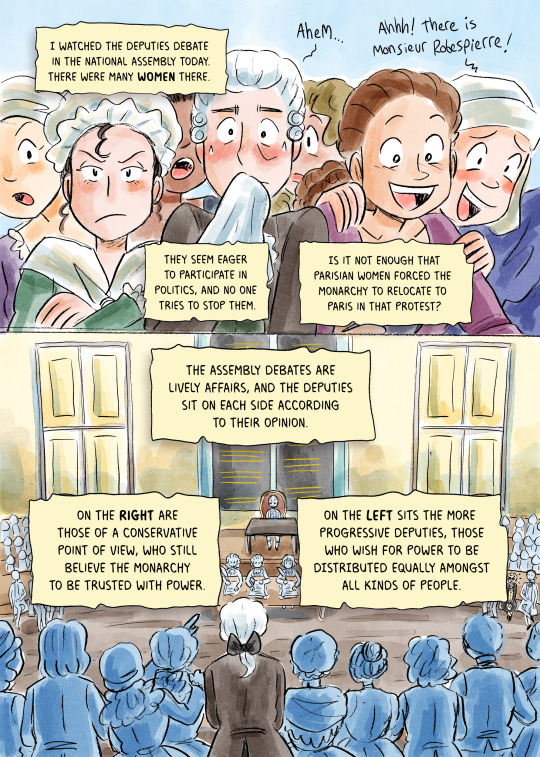
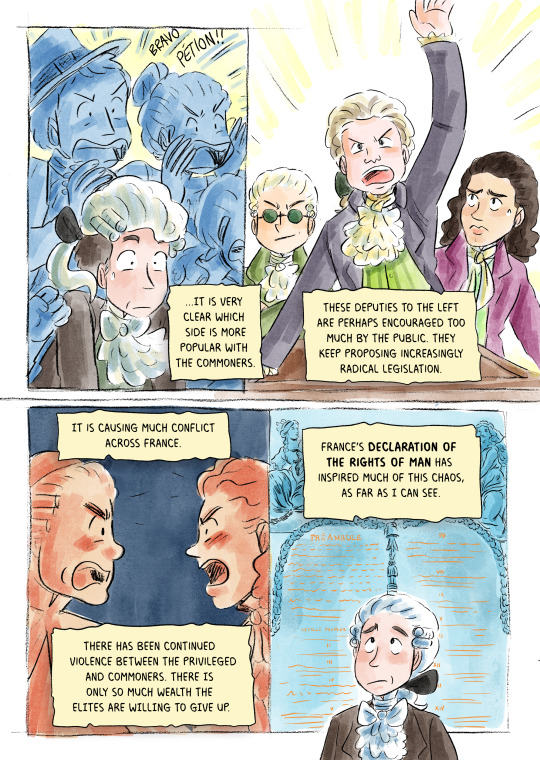
#incorruptiblecomic#can you name the other revolutionaries on the 2nd page?#what a fun game lol#I'm also sorry for this very cynical and aghast 'Anglo' viewpoint. Its probably only funny to me#the British person who goes to bookshops and mostly only finds Frev books from this irritating 'they were too progressive' pov lol#frev#french revolution#maximilien robespierre#robespierre#history comic#history#political history#comic#webcomic#webtoon#historical fiction#french history
123 notes
·
View notes
Text
Yeah this was the Lily Orchard/CD-Call "wojak artist" shitposting blog, "Liquid Orcard/Eldritch Lily".
Now it's a sicko mode socialist shitposting blog.
We will suffer through this together.

Still will talk about Lily from time to time, just-- not exclusively anymore.
Commissions:


Plz support helps not starve okie:
All the Lily Wojaks and Lily puppet are STILL AVAILABLE AND FREE TO USE on my ko-fi!
Lorch soup still on:




Ingredients:
3 Beans - Spagetti
Gay rights - Liquid
Cum Tissues - Sheev
Adderall - Sai
Add your ingredients by sending a donation of 1 dollar or more to my ko-fi!
Send asks about teh politics, Lily, whatever. Send asks requesting for funny hahas.
Horror/Art Blog:
Blusky:
#liquid orcard#eldritch lily#Liquid Bonhomme#jean guy joy#lily orchard#lily orchard critical#anti lily orchard#lily peet#lily orchard stuff#lorch posting#youtube#cd call#french canadian#canadian history#canada#canadian#canada politics#socalism#trans man#transmasc#trans rights#trans pride#transgender#digital art#artwork#artist support
9 notes
·
View notes
Text
The U.S. war for independence really takes on a different tenor when you learn:
Those evil taxes the British added primarily affected wealthy colonists
which were added to recoup the debt Britain incurred after defending the colonies during the French and Indian War
which was started by a young George Washington ambushing a French patrol over Ohio River Valley territorial disputes (which of course was native land colonists were fighting over)
and the colonists engaged in tons of mob violence, property destruction, and other forms of what is now considered illegal protest by the very government that once did that against the British.
Oh and that after winning the war the new US government implemented taxes that were:
2-3 times higher than the British ones were
which now primarily targeted poorer people like yeoman farmers who did not have voting rights.
I’m addition, a majority of the soldiers who fought in the war were paid in valueless continental currency and never given the acres of farmland they were promised
both of which led to widespread violent protests and outright rebellions which the new government ruthlessly crushed.
As is usually the case, history is a lot more complicated that any nation’s foundational narrative constructs it as.
9 notes
·
View notes
